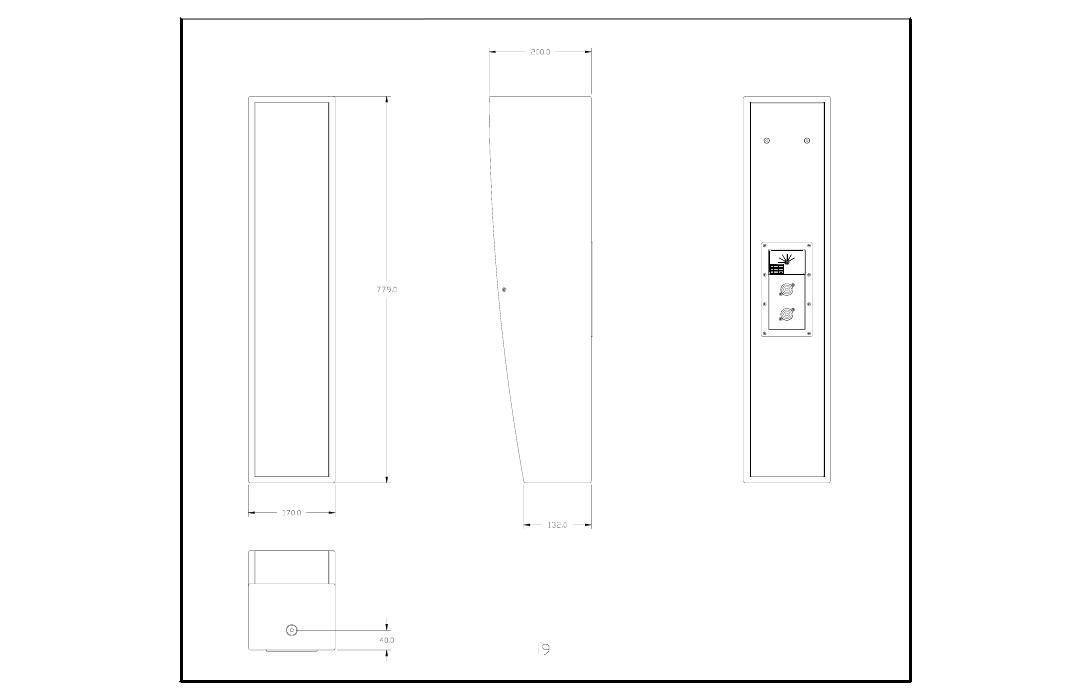
.
6. Polarity Checking
It is most important to check the polarity of the wiring. A simple method of doing this
without a pulse based polarity checker for LF units is as follows: Connect two wires to
the +
ve
and -
ve
terminals of a PP3 battery. Apply the wire that is connected to the +
ve
terminal of the battery to the speaker cable leg which you believe to be connected to the
red speaker terminal and likewise the -
ve
leg of the battery to the black speaker terminal.
If you have wired it correctly, the LF drive units will move forward, indicating the wiring
is correct. All that remains now is to connect the +
ve
speaker lead to the +
ve
terminal on
the amplifier and the -
ve
lead to the -
ve
terminal on the amplifier. If however the LF
drivers move backwards, the input connections need to be inverted.
If problems are encountered, inspect the cable wiring in the first instance. It should also
be noted that different amplifier manufacturers utilise different pin configurations and
polarity conventions, if you are using amplifiers from more than one manufacturer,
check the polarity at the amplifiers as well as the loudspeakers.
7. Equalisation
The i9 is designed to need no equalisation or correction to overcome system limitations.
As a result, it will only need equalisation to compensate for difficult acoustic
environments.
Excess equalisation can reduce system headroom, and introduce phase distortion
resulting in greater problems than it cures. If equalisation is required then it should be
applied gently and smoothly. Violent equalisation will be detrimental to the overall sound
quality. If the loudspeakers were being used consistently at high levels it would be
beneficial to introduce a high-pass filter at 50 - 85Hz to protect the loudspeaker from
any unnecessary subsonic frequencies.
8. Dimensions
9
C 60W30W
60WD
Transformer Tappings
B
100V
30W
15W
70V
7.5W
15W
A
B
A
C
D
8ohm
OFF
8
















